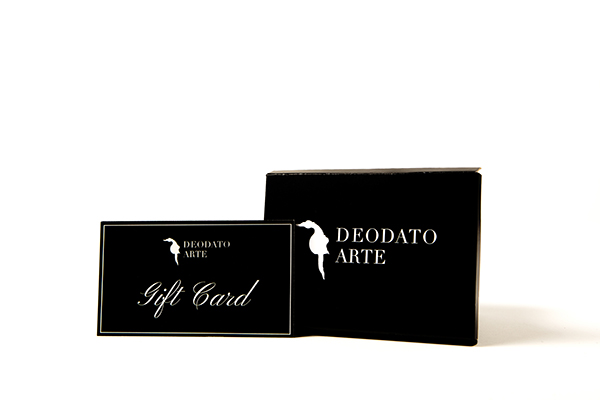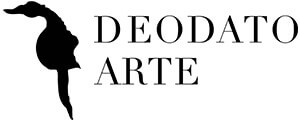
STREE ART REVOLUTION EXHIBITION EXTENDED UNTIL MARCH 16, 2025
The Street Art Revolution exhibition tells the story of one of the most contemporary and controversial art movements, Urban Art. Internationally renowned artists such as Banksy, Keith Haring, Blek Le Rat, Obey, Andy Warhol and many others are featured in an exhibition that celebrates the evolution of Street Art and its languages.
The exhibition, which opens to the public September 28 at Palazzo Tarasconi in Parma, tells the story of how Street Art has revolutionized the art world, challenging traditional conventions and bringing art directly to the people. This art form has democratized access to creativity: through the use of walls in cities, it has made works visible to everyone, regardless of social or economic background. In addition, Street Art addresses pressing issues such as social justice, political oppression, and economic inequality, becoming a powerful voice for social change. With innovative techniques and provocative messages, street artists have succeeded and still succeed in influencing public perception, stimulating debate and inspiring collective action.
We all know the greatest Street Artists, but few know how the movement began: how did it go from graffiti on New York subways to Banksy's world-renowned walls?
Street Art Revolution is an unmissable opportunity for all those who wish to explore the world of Street Art through the works of its leading exponents.
"One of the most disruptive, revolutionary Exhibitions ever created. An exhibition project in which the viewer will find himself in dialogue with works of unprecedented media and thematic power. Warhol, Banksy, Obey, just some of the authors who have crossed the boundaries between art, symbolism, and virality. We recognize in them something terribly true, incisive, real. Though without admitting it to ourselves entirely." - Luca Bravo
The exhibition route of the exhibition
The exhibition begins with a section devoted to Andy Warhol, pioneer of Pop Art, whose influence on Street Art is undeniable. Warhol, with his concept of reproducibility and his vision of art as provocation, laid the foundation for many urban artists, transforming art into a means of social criticism accessible to all. We continue with Keith Haring, who through his outdoor interventions and his "Subway Drawings" sanctioned the transformation of New York's streets and subways into spaces of artistic expression. His works, characterized by stylized figures and social messages, became symbols of a new artistic era.
The next section is again set in the Big Apple of the early 1980s with JonOne, one of the earliest and leading exponents of graffiti art, who is greatly credited with bringing graffiti from Harlem (NY) to Paris and from the street to the canvas. Passing through JonOne we then come to the European scene, where Blek Le Rat and soon after Jef Aérosol changed the face of French cities with their innovative stencils. Considered the father of Stencil Art, Blek Le Rat with his famous "rat," a symbol of the rebellion and pervasiveness of urban art, influenced generations of artists including Banksy.
The famous British artist, with his provocative and socially conscious works, brought stencil art from Europe to global attention. His creations have become iconic, defining street art as a powerful form of political and social expression.
If we talk about art and activism, it is impossible not to mention Shepard Fairey, aka Obey; his works-including his famous portrait of Barack Obama "Hope" and his campaigns for rights and environmental protection-have a strong impact on popular culture and politics.
The exhibition continues with the "European Wave" bringing to the public's attention street artists such as D*Face, Invader, Vhils and The London Police. These artists have taken street art to new heights with distinctive styles and innovative techniques. They are then joined by PichiAvo, who combine classic aesthetics with the language of tags to create works that blend past and present in a fascinating visual dialogue. Also on view are unique and limited edition pieces by Mr. Brainwash and Pure Evil, artists who bring a pop twist to street art, with works that recall Warhol's work and add contemporary commentary on celebrity culture and society.
Finally, the exhibition devotes a section to Italian artists who have made their mark on the international scene. From Sten Lex with his stencil poster technique to Microbo and Bo130, Hogre, Orticanoodles and Biancoshock with his provocative installations, Italy has made significant contributions to the growth and evolution of Street Art.
"This exhibition is intended to be a journey within Street Art, a subject that is talked about and seen a lot on the web, in newspapers, on social media, etc., but about which little is still known and its impact is hard to fully understand. If, as Wim Wenders suggests, "America has colonized our unconscious," hip hop has colonized our visual imagery of cities. Each of us associates something with graffiti and tags, posters and stencils, murals and urban sculptures. It is amazing to see how many things are mixed together when we try to talk and reason about street art. The concepts of vandalism, legality, advertising, redevelopment, art, muralism, marketing, communication, urbanism, degradation come into play. And all just because of strange signs that, from a certain point forward, have begun to appear in an increasingly powerful and overbearing way on the walls of our cities. We are still a long way from having found a synthesis. The only thing we cannot do today is to ignore this." - Giuseppe Pizzuto
Through the Street Art Revolution exhibition, the public will have the opportunity to explore the vibrant world of Street Art, from its humble beginnings on the streets of New York to its consecration as a global art movement.











 Register
Register Wishlist
Wishlist Contact Us
Contact Us

